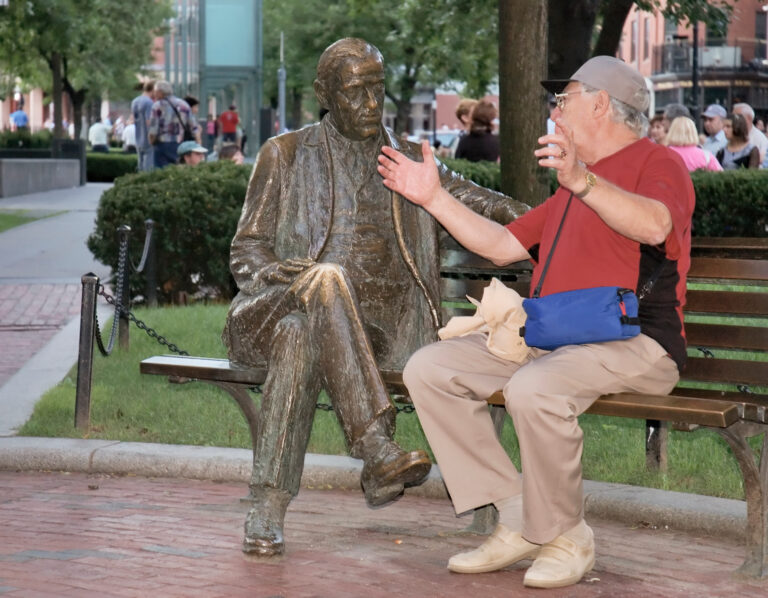In business, especially in fast-moving fields like finance and technology, it’s easy to drift from your original sense of purpose. You start with a mission—to solve a real problem, to help people—but over time, the daily demands of running a company can blur that vision. Meetings, metrics, product decisions, and investor updates start to fill every corner of your mind. You can get caught up in growth charts and forget what the growth is actually for.
Recently, I had an experience that brought that purpose back into focus. It didn’t happen at a conference or in a boardroom. It happened on the ground—volunteering for a week at an Israeli Defense Forces (IDF) logistics base through the Sar-El program. It was a powerful reminder of why I do what I do and how meaningful work can take many forms.
Showing Up With Your Hands, Not Just Your Head
The Sar-El program places international volunteers on military bases across Israel to support logistical and humanitarian tasks. I signed up with a friend, and we joined a group of around 400 volunteers that week. We came from different countries, backgrounds, and beliefs, but we all shared one thing: a desire to help in a hands-on way.
We were assigned to a base near Tel Aviv and tasked with sorting and rebuilding medical supply kits. These kits support IDF infantry units, hospitals, and humanitarian operations. The work was simple, repetitive, and essential. We checked expiration dates, restocked items, reassembled packages, and organized pallets. Nothing about it was glamorous. But every box we packed had the potential to save a life or ease suffering.
That week, I wasn’t “Marco the founder” or “Marco the finance guy.” I was just another pair of hands doing what needed to be done. And in that simplicity, I found something I’d been missing.
Finding Clarity in Manual Work
As someone who spends most of his time working with data, technology, and strategy, I’m used to operating in the abstract. I enjoy solving complex problems, designing systems, and thinking about how to make processes more efficient. But there’s a certain kind of clarity that comes from physical work—especially when it’s tied to a larger cause.
Packing medical supplies doesn’t require a spreadsheet or a slide deck. It just requires care and attention. It’s humbling, and it reminds you of the human reality behind the systems we build. Each kit wasn’t just inventory. It was a tool that might be used by a medic in the field, a nurse in a hospital, or a volunteer responding to a crisis.
That groundedness—knowing that what you’re doing has immediate, tangible impact—is something I think many of us in the professional world need more of.
Purpose Is Not a Brand—It’s a Practice
In recent years, there’s been a lot of talk in the business world about “purpose.” Companies craft mission statements, launch social initiatives, and talk about making an impact. But purpose isn’t something you can write once and forget. It’s a practice. It needs to be lived, renewed, and reconnected with regularly.
Volunteering reminded me that purpose often shows up in quiet moments. It’s not always about innovation or disruption. Sometimes it’s about serving where you are, doing what’s needed, and being part of something bigger than yourself.
That week on the base, there were no KPIs or investor updates. Just teamwork, shared meals, and a common sense of contribution. It brought me back to a very basic but important question: “Who am I helping, and how?”
Bringing the Lessons Home
When I returned home, I didn’t feel the same about my work. That’s not to say I wanted to change careers or step away from what I’ve built. But I did feel more connected to the reason I started building in the first place.
At AI Exchange, our goal is to make investment tools more accessible, more transparent, and more useful to a broader group of people. That mission felt abstract at times—especially when buried under layers of code, operations, and market cycles. But volunteering helped me reframe it.
It reminded me that good work—whether in tech, finance, or logistics—is about service. It’s about removing friction, providing clarity, and helping people navigate uncertainty. That’s what we do in our own way at AI Exchange. And that’s what the IDF logistics base was doing on a different front. Different context, same principle.
Don’t Wait for a Crisis to Reconnect
One thing I took away from the experience is this: you don’t need a global emergency to serve. You don’t need to wait for a “big moment” to reconnect with what matters. Sometimes showing up, in small and consistent ways, can have the biggest impact—on others, and on yourself.
For founders and professionals who feel burnt out or disconnected from their original “why,” I encourage you to get out of your usual environment. Volunteer. Contribute in a setting where your title doesn’t matter. Step into a role where your impact is felt directly. It will change you.
Volunteering on the ground didn’t just help others—it helped me. It gave me space to step back, reset, and return to my work with more clarity, humility, and motivation.
No matter how advanced our systems become or how complex our roles grow, we all need to stay close to the human side of what we do. That’s where purpose lives—not in plans, but in action. Not in titles, but in service.
Sometimes, the best way to lead is to pack a box, lend a hand, and listen. That’s where the real work begins.


